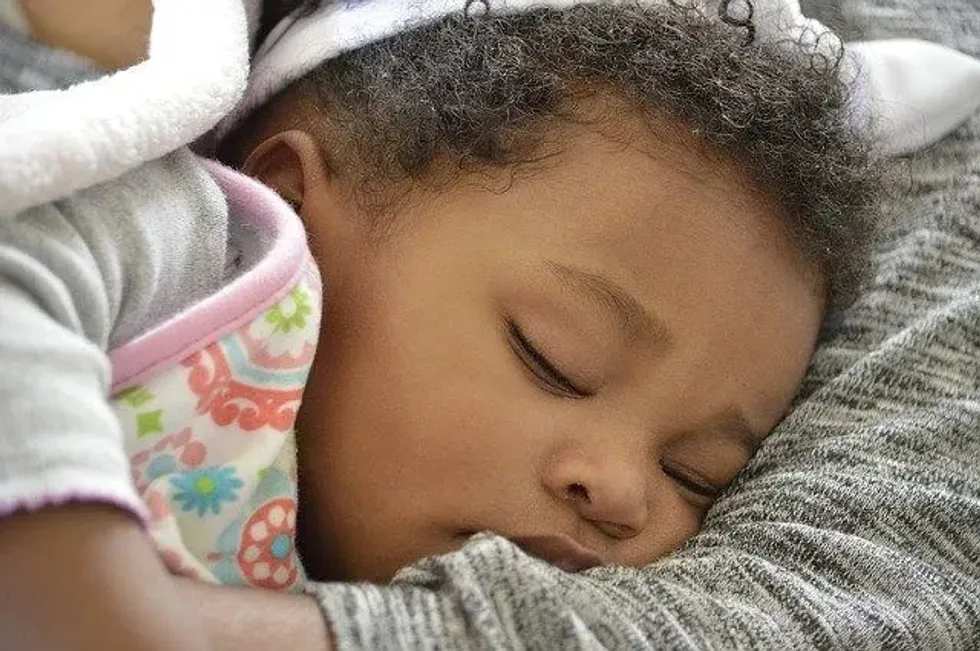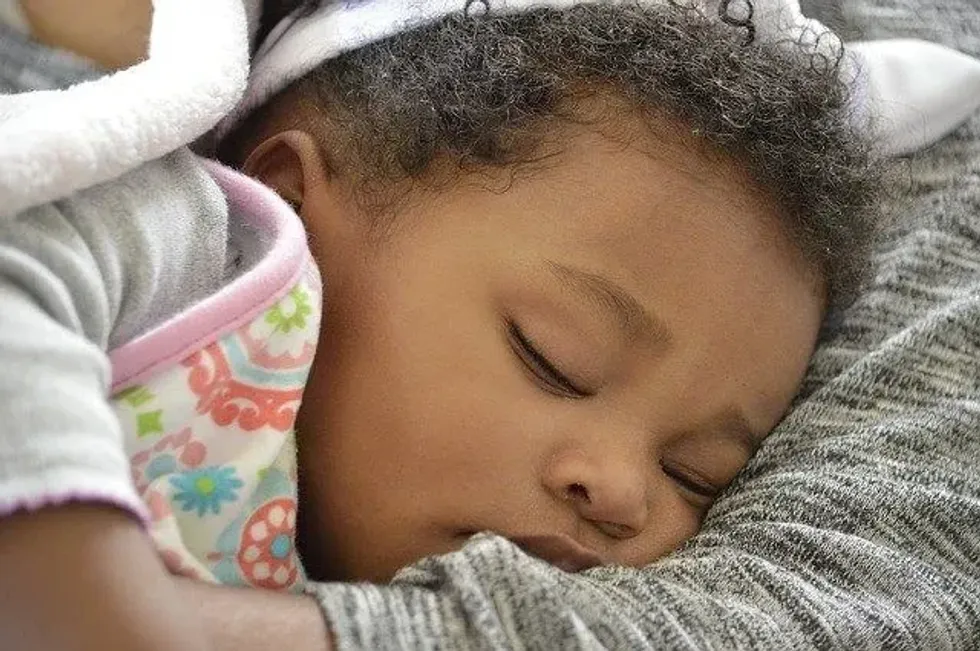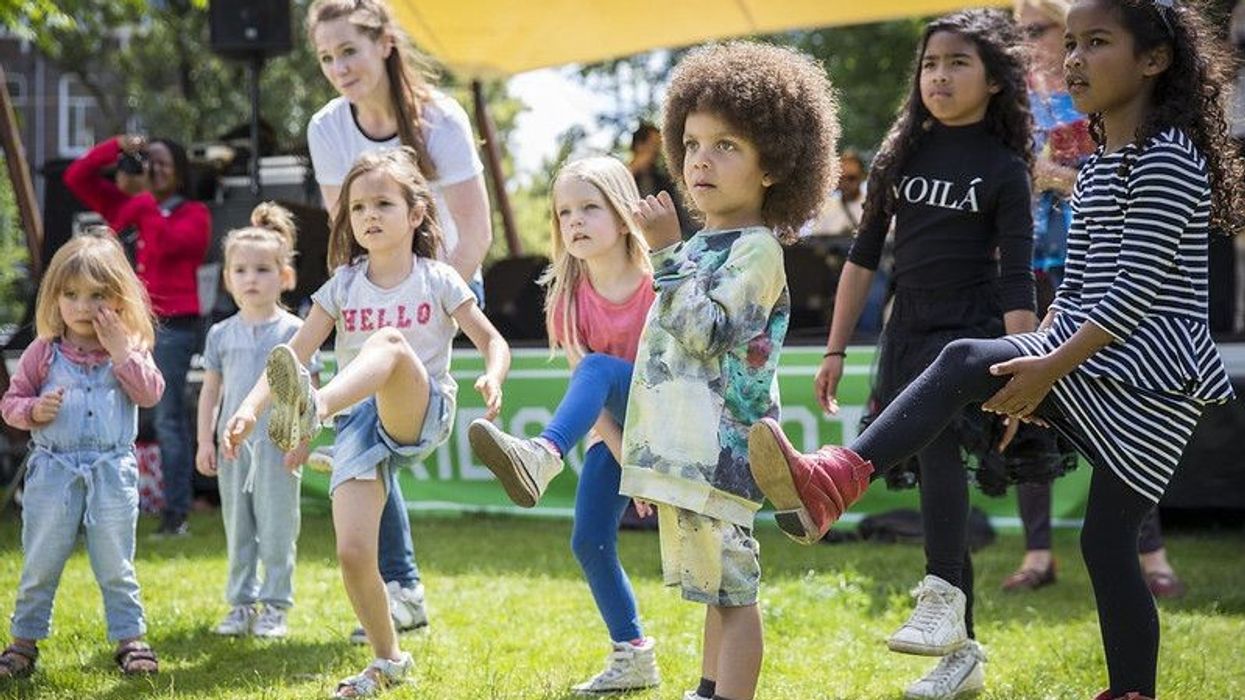What is a sleep regression?
Changes with your baby's sleep are a totally normal part of their development. A sleep regression is what we call a period of change with sleep patterns, your baby might wake up more often throughout the night, struggle to get settled or start to sleep less overall.
You may have already experienced a sleep regression or two with your little one. Sleep regressions can happen at any point but around the one-year mark is very common.
Sleep regressions also often happen around the four and nine-month mark, and as your baby reaches certain developmental milestones. Toddler sleep regression is also totally normal as this is another time in a little one's life when things are changing and developing.
There are so many assumptions and expectations related to infant sleep when really every baby is different and we can't expect them all to do the same things at the same time.
It is often expected that by the time your little one reaches their first birthday, they will be sleeping through the night, however, it is actually far more common for this not to be the case, in fact, science has shown that over half of nine to 12-month-old infants will wake many times throughout the night.
Sleep regressions can be tough on baby, and tough on you, so we have gathered the best survival tips to help you all through this period of growth. We can't guarantee you'll get more sleep but we can help make this time easier and more manageable.
If you would like to read more about baby and toddler development, take a look at our other articles on 14-month-old milestones and [16-month-old milestones].
What Is The 12 Month Sleep Regression?
The 12 month sleep regression is when, around the time of your baby's first birthday, their sleep pattern shifts, and often this results in less sleep for everyone.
It is quite likely that your little one is already waking through the night, but perhaps you have fallen into some sort of pattern, this is when sleep regressions can be a bit of a shock to the system, but thankfully they usually only last from few days to at most a few weeks.
Some of the key 12 month sleep regression signs to look out for are:
Baby having a hard time falling asleep at bedtime.
Baby starts waking up more frequently through the night.
Not wanting to nap, dropping naps.
Increased grouchiness (understandable!).
Parents are often told that as our babies get older their sleep will improve but actually, this is very rarely the case.
The best sleep in your baby's first year is actually often in the earlier months. Sleep is a funny thing, we expect babies to sleep through the night but it's actually relatively uncommon for anyone to sleep all night, adults often dip in and out of sleep and wake for various reasons.
Sleep habits can seem to change around the one-year mark, but some babies may have had a regression closer to the eight or nine-month mark and you may find that 12 months comes and goes quite peacefully.

Why Does It Happen?
So why does the 12 month sleep regression happen? Well, there are a number of reasons why a sleep regression can happen at any age, but there are some factors more exclusive to the 12 month sleep regression making it very common among our little ones today.
A 12 month sleep regression and teething often come hand in hand, along with things like starting solid food, stopping breastfeeding, learning new skills such as crawling or walking, the list goes on, and pretty much any notable change in a baby's life has the potential to lead to a sleep regression.
Around their first birthday though, there a few key things that can have an effect on baby's sleep.
Developmental Leaps
A leap in development and reaching milestones can contribute to a sleep regression. Your baby's mind is developing at such a pace and with all those new skills and abilities being processed, not to mention being much more physically active, they can find it harder to fall asleep.
Environmental Changes
Changes to your baby's environment can have an impact on their sleep. A house move, going on holiday or changing to their own bedroom, all of these changes can throw off sleep.
A holiday to a different time zone can change nap times and increase or decrease sleep. Keeping some kind of bedtime routine the same as at home and bringing along some home comforts can ease the transition.
Separation Anxiety
Separation anxiety can start to occur from around eight months and onward, although of course, it varies.
This is where baby begins to understand that you are separate to them, but they can't yet understand the concept of time, so if you leave the room, they are immediately fearful that you are never going to return!
This can be eased by making sure that if your baby cries, you respond to them, leaving them to cry for any amount of time causes a great deal of stress as they can't comprehend why their cries aren't working.
This is also why sleep training is often discouraged, a set nap and bedtime routine can work wonders whereas many believe that sleep training simply teaches your child you won't come when they cry, it doesn't stop them from waking or allow them more sleep.
Separation anxiety is also common around 12 months because this is often when parents have to return to work.
Your child might be adapting to a new childcare setting, a new daily routine, and many other changes. They will get used to their new routine but it could mean a few sleepless nights for you.
Remember you are their whole world, ideally, before bedtime, your baby needs at least a couple of hours to reconnect with you after such a big gap, if this does not happen then they will often try to reconnect at night by waking regularly.
It may be helpful to know that sleep regressions happen to us all through life, a stressful event as an adult can affect our sleep habits, illness, nightmares, and so on can all have an impact on sleep.
The difference seems to be that because we don't need to disturb anyone else's sleep, it's less of a problem because we can cope on our own.
Babies and young children simply do not have the ability to comfort and reassure themselves back to sleep in the middle of the night, which is why it is up to us as parents to adapt and learn how to cope with this temporary lack of sleep, in order to meet our child's needs until they are able to happily do it themselves.

Top Tips For Surviving
Sleep deprivation is no joke, when your baby won't sleep it can sometimes start to feel like you are losing your mind. A baby sleep regression should usually only last for a few days up to a few weeks, so it really isn't going to last forever but that doesn't necessarily make it any easier at the time.
If you are having concerns and think they aren't related to a sleep regression then don't hesitate to seek medical advice.
These 12 month sleep regression tips should help to make this transition easier for you and your baby.
As parents and adults, we have the life experience to know that this is tough but not forever, our children don't know this though, and it can be a stressful and fractious time for them.
We want to help you, to help your child on the path to sleeping well, and stay asleep for longer stretches where possible, but remember, waking up through the night is expected at 12 months, even children age two and up often still wake through the night.
Check out this advice about how to survive the 12 month sleep regression, we hope it helps, you've got this!
1. Remind yourself often, that this won't last forever. It can be hard to keep a positive mindset but regressions are often due to growth and a leap in development, and this a good thing, it means your baby is learning more and more about the world and becoming their own little person.
2. Changes in routine can contribute to sleep regression, so although it is tempting to try all sorts of new things, gadgets, music, one nap or no naps, and so on, keeping things the same right now is really important. Stability and routine help children to feel secure.
3. If you are able to do so safely, co-sleeping (sleeping with baby in the same room) can be an excellent option for helping your baby through this time, whilst also getting more sleep yourself. With your little one nearby you can comfort them without too much disruption for both of you.
4. Try not to add any extra pressure.
If possible, ask for extra help, let the housework slide if you need to, and don't stress about eating the odd ready meal or ordering more takeout than usual. It can be tempting to rush around and get lots done when baby eventually goes to sleep, but try and get a few extra hours yourself if you can.
5. During the 12 month sleep regression, babies often want to feed more than usual through the night. This is completely normal and natural, especially as feeding is often about connection and comfort as much as being hungry.
6. Being cold is a common reason for waking. At this age, it is good to still have your child sleeping in a baby sleeping bag as a duvet can easily come off in the night.
If your child doesn't like the restrictive feeling, you can now get sleeping bags with fitted legs! It is important to have bare feet at night for temperature regulation, so a 2.5 tog sleeping bag with bare feet should be just right. Getting the temperature right can help your baby sleep more comfortably.
7. Check your 12-month-old isn't getting too much exposure to screens before bedtime.
Watching TV too close to bedtime increases brain activity and the blue light emitted from devices is a major sleep inhibitor. Ideally, your child should have at least two hours in between the last time they looked at a screen and going to bed.
This might be a slight change in routine but swapping the TV for reading books together or playing quietly could help your child fall asleep more easily at bedtime.
8.
Your 12 month old needs roughly 11-14 hours of sleep in a 24 hour period.
For some little ones, if they nap for two hours or more, they then only need nine hours at night, so if you are trying to put them to bed by say 7 p.m., they are going to be either waking in the night or they'll be up at 4 a.m., and that's not including any regression related extra wake-ups.
So a pushing bedtime a little later could make getting to sleep much easier.
9. It is really important to remember that regressions are very rarely something you have personally done, this can be a bit of a hard time but it is not your fault. All you can do is make sure to comfort your baby when they need you, and take care of yourself too.
10. Patience is key. Sleep regressions will often pass naturally without you having to do anything at all except be there when your child needs you.
If you found this article helpful, you might like to read more about your baby's development as they move from babyhood to becoming a toddler. Check out our list of [developmental milestones in 19-month-olds], or why your 20-month-old might not be talking yet.










